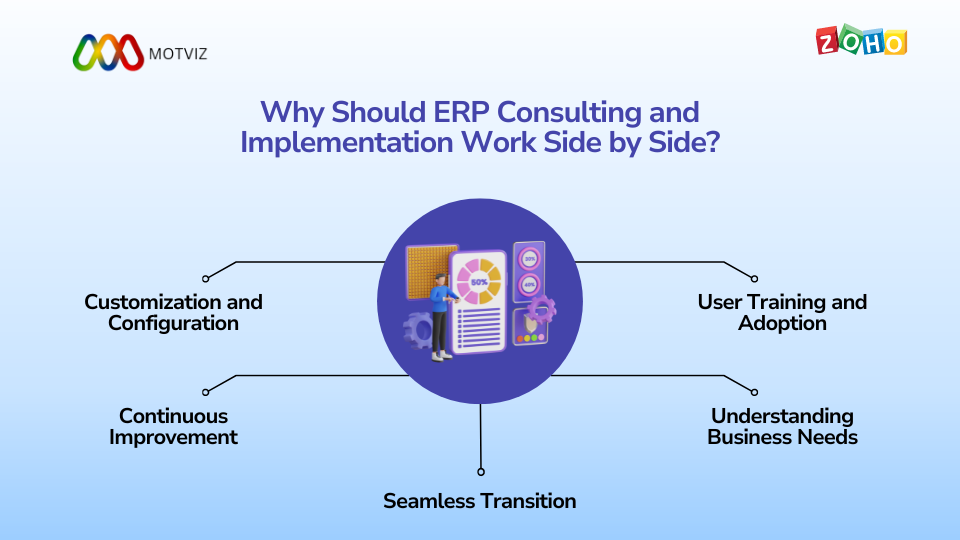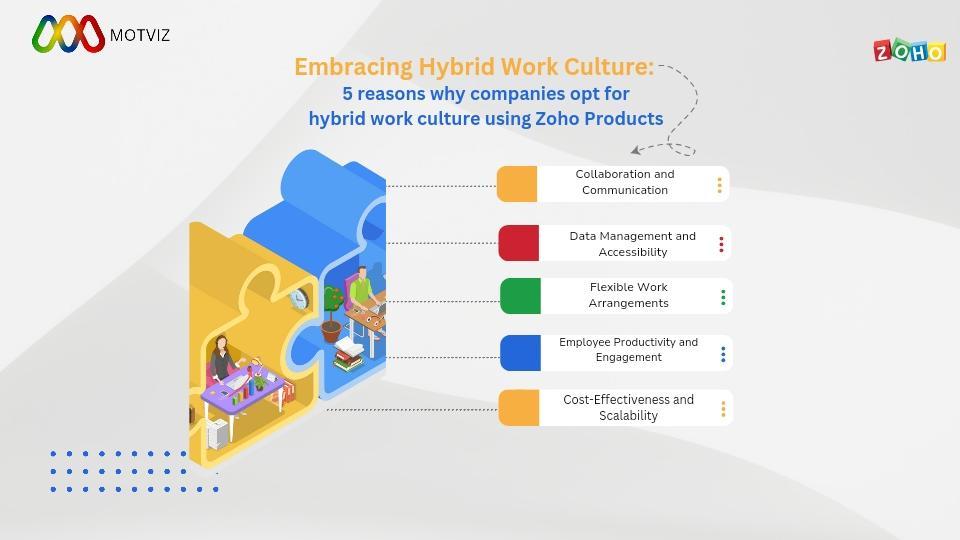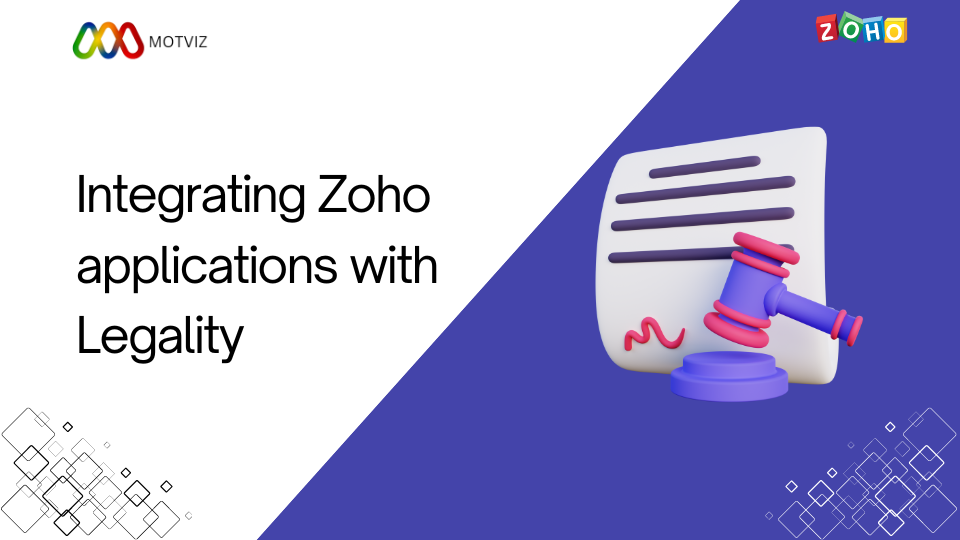
Why Should ERP Consulting and Implementation Work Side by Side?
In the ever-evolving landscape of business technology, Enterprise Resource Planning (ERP) systems play a crucial role in streamlining operations, enhancing efficiency, and driving growth. However, the successful adoption of ERP solutions requires a strategic approach that involves both consulting and implementation phases working collaboratively.
In this blog post, we’ll explore the reasons why ERP consulting and implementation should work hand in hand for optimal results.
1. Understanding Business Needs:
ERP consulting lays the groundwork for successful implementation by thoroughly understanding the unique needs and challenges of the business. USA-based Zoho Consultants engage with key stakeholders to assess current processes, identify pain points, and determine the objectives that the ERP system should address. This understanding is critical for designing a tailored solution that aligns with the organization’s goals and requirements.
2. Customization and Configuration:
During the consulting phase, ERP consultants work closely with the implementation team to customize and configure the ERP system according to the business’s specific needs. This involves adapting the software’s features, workflows, and modules to match the organization’s processes and preferences. By collaborating from the outset, consultants and implementers ensure that the ERP solution is optimized to meet the business’s unique requirements.
3. Seamless Transition:
Effective communication and coordination between ERP consultants and implementation teams are essential for a smooth transition from planning to execution. Motviz as Zoho Consultants in USA provide valuable insights and guidance to the implementation team, ensuring that best practices are followed, potential challenges are addressed proactively, and the project stays on track. This collaborative approach minimizes disruptions and accelerates the deployment of the ERP system.
4. User Training and Adoption:
ERP consulting extends beyond technical aspects to include user training and change management strategies. Consultants work closely with the implementation team to develop training programs tailored to the needs of different user groups within the organization. By educating users about the new system’s functionalities and benefits, consulting teams facilitate smoother adoption and help maximize the return on investment in ERP technology.
5. Continuous Improvement:
ERP consulting and implementation should not be viewed as isolated phases but as ongoing processes aimed at driving continuous improvement. Zoho Consultants in USA play a crucial role in post-implementation support, monitoring system performance, identifying areas for optimization, and recommending enhancements to maximize the ERP system’s effectiveness over time. By working collaboratively, consulting and implementation teams ensure that the ERP solution evolves in tandem with the organization’s changing needs and industry trends.
Conclusion:
In conclusion, the synergy between ERP consulting and implementation is essential for the successful deployment and long-term success of ERP systems. By working side by side, consulting and implementation teams can leverage their respective expertise to design, deploy, and optimize ERP solutions that empower organizations to achieve their strategic objectives, enhance competitiveness, and drive sustainable growth in today’s dynamic business environment.





